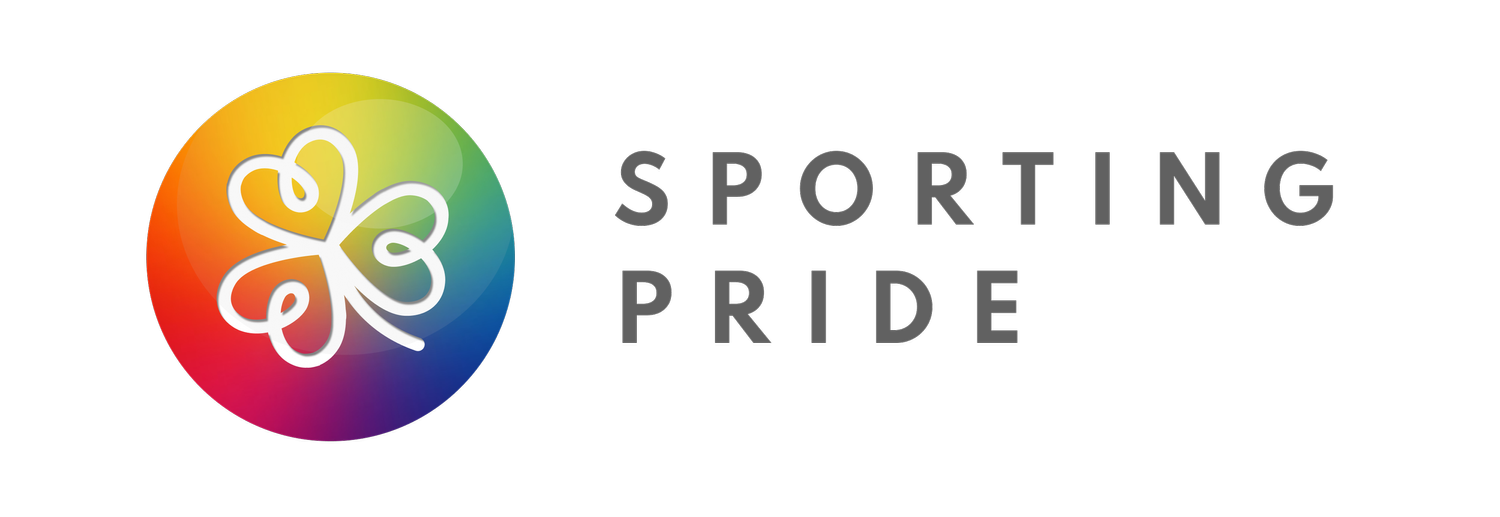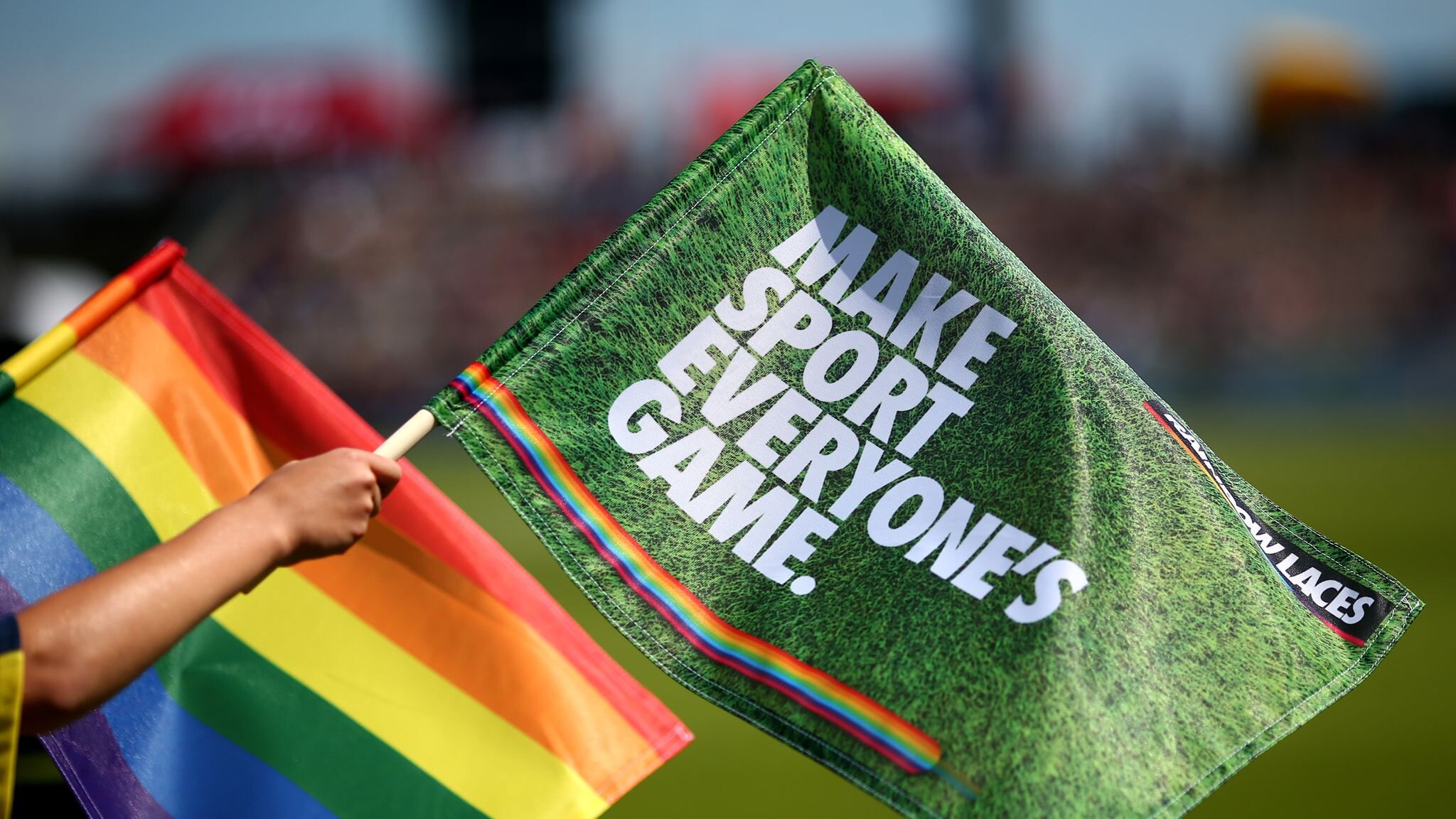Tackling Homophobia in Irish Sport
Sporting Pride will endeavour to make sports a more welcoming environment for our community in a number of different ways, one of which is tackling homophobia in Irish sport and making the sporting environment a more inclusive and welcoming place for the LGBTQ+ community.
One of the primary aims of Sporting Pride is to increase LGBTQ+ participation in sport. Research has shown that the LGBTQ+ community has a much lower participation rate in sport in comparison to the general public. A survey in the UK found that 55% of LGBT men and 56% of LGBT women were not active enough to maintain good health, compared with 33% and 45% respectively of the general public (1). Part of the reasoning behind these lower participation rates could possibly be linked to the homophobia which is still evident in sports today.
Homophobia in Irish Sports
Out on the Fields (2), the world's first international study on homophobia in sport, concluded that homophobia is rife within sports settings. From an Irish perspective, out of 501 Irish respondents, 43% believed that spectator stands are the most likely setting for homophobia to occur. Both inter-county referee David Gough and former Cork hurler Donal Óg Cusack have encountered such abuse (3)(4). David described his experience as “embarrassing”, mainly because his family also have to listen to and deal with this abuse (3).
Furthermore, three quarters of Irish participants believed that youth sports are not safe and welcoming for LGB youths. The same number reported having witnessed or experienced homophobia in sport. From those respondents, 54% of gay men, 40% of lesbians and 19% of straight men reported being a victim of homophobia, with homophobic slurs and language being the most prevalent form. What's more, out of those who reported being a victim, 83% of gay men and 89% of lesbians reported being verbally abused with slurs such as 'faggot' or 'dyke' while participating in or watching sports (2). In a similar incident, Irish international rugby star and former Dublin GAA player Lindsay Peat, recently spoke about her experience of verbal abuse after being called a “dirty dyke” during an All-Ireland football final, highlighting the fact that although women don’t appear to experience as much homophobia as men, they still experience it (5).
The most harrowing finding was possibly the fact that only 1% of Irish respondents believe that LGB people are 'completely accepted' in sports while almost 50% believe they are 'not accepted at all' or only 'accepted a little'. The findings of this study resulted in Ireland being ranked fifth out of the six English-speaking countries examined for inclusion and acceptance of LGB people in sport (2).
With these results in mind, it appears that a culture of homophobia is rife in Irish sports settings and steps must be taken to increase the inclusion and acceptance of LGBTQ+ people.
What can be done?
There are a number of ways in which homophobia in sport can be tackled, the first of which is to work alongside National Sports Governing Bodies to develop LGBTQ+ inclusive programmes for every sports club in Ireland, from grassroots to the elite level. Creating policies that support the inclusion of our community and educating those who are influential in sports on LGBTQ+ issues will create a more supportive environment for all.
We can support the established LGBTQ+ inclusive sports clubs in Ireland and promote the development of more clubs who wish to cater for our community. Increasing the visibility of such clubs and recognising the impact they are already having will prove to others that the sporting environment can be a safe and enjoyable space for LGBTQ+ people.
Promoting the achievements of LGBTQ+ champions in sport, such as the Cusack brothers (Conor and Donal Óg), Valerie Mulcahy, Lindsay Peat and Nicole Owens, will also contribute towards the fight against homophobia in Irish sport. Society is changing and there’s no doubt that the “coming out” of heroes will have a positive influence on LGBTQ+ youths looking for positive sporting role models.
Overall, there have been a number of positive developments in relation to LGBTQ+ rights in recent times. However, the world of sport, and the positive physical and mental health benefits it has to offer, is still not welcoming to everyone. Work needs to be done to change the sporting environment into a more inclusive and diverse setting. Sporting Pride has set out to do this work.
(1) Pride Sports for Sport England (2016). https://www.sportengland.org/media/11116/pride-sport-sport-physical-activity-and-lgbt-report-2016.pdf
(2) Denison, E., & Kitchen, A. (2015). Out on the Fields. Sydney, Australia: Repucom.
(3) Irish Independent (2018). https://www.independent.ie/sport/gaelic-games/gaelic-football/intercounty-ref-david-gough-opens-up-about-the-homophobic-abuse-he-suffered-at-croke-park-37561448.html
(4) Horan, N. (2012). https://www.independent.ie/irish-news/donal-og-cusack-fights-back-against-the-bigots-26890998.html
(5) Bailey, R. (2019). https://www.the42.ie/lindsay-peat-lgbt-union-cup-4582619-Apr2019/
Image courtesy of Stonewall: https://www.stonewall.org.uk/make-sport-everyones-game-toolkit

